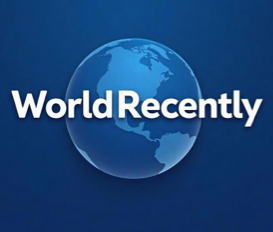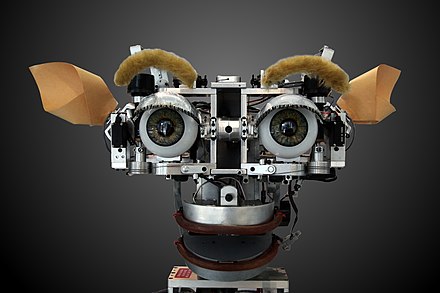Smart Future: A Symphony for the Global AI Industry in 2025
When the first rays of the morning sun sweep over the server clusters in Silicon Valley, the algorithm engineers in Shanghai’s Zhangjiang have begun to debug the parameters of the neural network, and the startup team in Bangalore is weaving the next disruptive application with their code – this is the daily picture of the AI world in 2025. This smart ecosystem, valued at $300 billion, is reconfiguring the underlying logic of human civilization at a rate that doubles every 18 months.
The awakening moment of the digital nerve
Imagine such a morning: self-driving car adjusts the light in the car according to your biological clock, medical AI delivers accurate health programs at breakfast, and shopping assistants recommend goods that fit your heart like an old friend. These once sci-fi scenarios have now quietly penetrated the living radius of 78% of middle-class families. ai is no longer the Promethean fire confined by the lab, but has taken on millions of digital incarnations, screening for cancer cells in medical images, catching traces of fraud in financial data streams, and even reading the mood fluctuations of a model during a live broadcast of Paris Fashion Week.
The numerical magic of the market size is dizzying – from $300 billion in 2025 to a projected $800 billion in 2030, that’s the equivalent of rebuilding the GDP of three Swiss countries in five years. but even more impactful than the numbers is the Google Brain’s race against OpenAI: while GPT-5 can write short stories that rival Hemingway’s, Deacon’s brain can also write short stories that rival Hemingway’s, while Deacon’s brain can write short stories that rival Hemingway’s. While GPT-5 can write short stories comparable to Hemingway’s, DeepMind’s AlphaFold4 is cracking the ultimate code of protein folding. This triathlon of arithmetic, algorithms and data has turned every tech giant into the never-ending Sisyphus of Greek mythology.
The two-sided mirror image of the technological singularity*
In the flagship store in Ginza, Tokyo, generative AI customizes an exclusive perfume formula for each customer; in a lab in Boston, an AI-powered surgical robot completes its 100,000th precision operation. But there’s always another side to the technology coin: on the eve of a country’s election, deeply faked videos of politicians’ speeches sparked riots in the streets; and recruitment algorithms unintentionally built a high wall of academic bias, causing students from humble backgrounds to get lost in the digital labyrinth.
This has forced humanity to unleash the most complex balancing act in its history: the EU has dammed the data deluge with GDPR, the first AI copyright dispute is being heard in a California court, and at the negotiating table in Geneva, representatives of the 193 nations are battling over a ban on lethal autonomous weapons systems. As Sarah Connor, a professor of AI ethics at Cambridge University, put it metaphorically, “We are putting the reins on a mechanical steed running at the speed of light.”
The New World of the Breakers
While tech giants tangle in an arithmetic arms race, a group of disruptors are rewriting the rules of the game. Bengaluru startups are using edge AI to make tractors learn to recognize soil moisture, developers in Nairobi have trained the first Kiswahili medical consultation model, and a team in Helsinki is using blockchain to put a transparency stamp on the AI decision-making process. These innovative forces from the edge of the world are tearing down the centralized walls of AI empires.
Small and medium-sized enterprises are finding leverage fulcrums in this transformation: a Shanghai textile factory has pushed its defective rate down to 0.03% with AI quality control, and a Melbourne cafe uses chatbots to remember the taste preferences of its 3,000 regular customers. As Mark Anderson, the godfather of Silicon Valley venture capital, puts it, “The democratization of AI is spawning a new wave of garage startup myths – only this time, the garages may be located in the slums of Rio or rural Bangladesh.”
The pass phrase for tomorrow’s world
Standing on the threshold of 2025 and looking back, AI is bringing not just a revolution in efficiency, but a cognitive migration. When climatologists use neural networks to simulate the respiratory rhythms of the Earth in the next hundred years, when teachers learn to prepare lesson plans with educational AI, when every ordinary person has a digital diversion agent trivia, humans are finally able to break free from the shackles of mechanical labor, and focus their wisdom on a more essential creation.
But this evolutionary journey has never been a straight path: 970,000 AI jobs are waiting in the wings, the pain of transformation of traditional industries continues, and the social rift of algorithmic bias needs to be bridged with wisdom. As OpenAI CEO Sam Altman predicted at Davos: “We are writing the new operating system of the 21st century, and every line of code is about where the course of civilization leads.”
At this moment, the symphony of the global AI industry is entering its most stirring movement. When silicon-based intelligence dances with carbon-based civilization, this law of counterpoint on technology, ethics and human destiny is destined to be written by all mankind.
Key Quotes
- Statista Global AI Market Size Forecast 2030
- Grand View Research Artificial Intelligence Market Analysis Report
- Fortune Business Insights Artificial Intelligence Market Growth Trends
- McKinsey State of AI Report 2023: The Breakout Year for Generative AI
- Exploding Topics 54 latest AI statistics
Read More: AI
-

Disney’s Live-Action Snow White Controversy Fully Explained: a Classic vs. Modern Tug-of-War
-
Tips and personal experience in buying auto insurance
-
Car Accident Guide: Handling Procedures, Insurance Claims & Legal Rights Explained
-
7 Key Reasons to Buy Life Insurance



[…] Removal from the House Chamber When is Daylight Saving Time 2025 Fat Tuesday 2025 2025 Global AI Industry Report 7 Mar 2025, […]
[…] a groundbreaking leap in artificial intelligence with the launch of Manus—the first autonomous AI Agent capable of executing complex tasks from start to finish. Developed by Chinese startup […]
[…] 2025 Global AI Industry Report […]